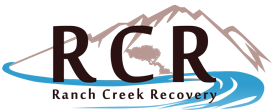For many people, dealing with boredom is a passing occurrence. The experience can be tedious and mind numbing, but the feelings tend to pass and resolve themselves naturally.
For someone struggling with addiction, dealing with boredom can bring a unique and altogether more problematic set of personal experiences. Having that time to get lost in thought or become overly focused on maladaptive behavioral patterns and personal compulsions can generate impulsive responses and trigger substance use.
Understanding why this happens within the mind of an addict is harder to pinpoint, but the consequences of excessive boredom are all too real.
Studies have shown that individuals who are easily bored tend to be at a higher risk for depression, anxiety, compulsive gambling, eating disorders, poor social skills, excessive hostility, low work performance and substance addiction.
That is why it is imperative to identify the dangers associated with excessive boredom and how they can negatively impact your loved one’s recovery.
Boredom and Drug Addiction: Is There a Link?
The popular saying, idle hands are the devil’s workshop, directly applies to your loved one’s response to boredom.
When faced with an excessive amount of downtime or unstructured independence, your loved one can find themselves facing an array of thoughts or stressors that can instigate an unforeseen relapse.
From past traumatic experiences to a lack of personal accomplishment to an overwhelming sense of anonymity, when your loved one is confronted with excessive boredom, they may inherently fall back into old, maladaptive habits.
The reason drug addiction and boredom seem to share such an intimate connection is due to the manner in which a substance use disorder can thoroughly bamboozle an individual.
A substance use disorder can convince a person into believing that their substance use is the best method of attaining comfort and purpose when they experience excessive boredom, perpetuating their substance use and driving them deeper into their addiction.
Boredom and Addiction Recovery
While boredom can instigate unforeseen relapse, a clinically sound treatment facility can aid in establishing sustained sobriety. The key is addressing each clientele’s proclivity toward boredom and the most effective manner of overcoming and avoiding those inclinations.
While each person has individual needs and addiction triggers, there are a few widely established techniques for avoiding unnecessary boredom and maintaining personal focus and motivation.
These are routinely implemented within a treatment program and may include:
- Setting Up a Consistent Routine
- Embracing the Beauty of Mindfulness
- Establishing a Sober Support Network
- Providing reminders for their scheduled obligations and encouraging them to attend
- Talking with them about their achievements and challenges in order to ensure they remain focused on how far they’ve come in their recovery journey
- Offering to attend meetings and appointments with them in order to keep them on task while avoiding excessive instances of boredom
Encourage your loved one to schedule their daily activities to ensure there aren’t huge gaps of unnecessary free time.
This can mean scheduling high quality experiences if they find themselves frequently bored. It can also mean dividing large projects if they find themselves chronically busy or overwhelmed.
The key here is to set a consistent routine in order to keep them working toward personal success and avoiding unstructured downtime.
While some may perceive meditation and quiet reflection as a precipitating factor of boredom, it actually functions as an effective technique to avoid ennui.
Meditation addresses the root issue of any kind of boredom because it quickly increases your loved one’s ability to be comfortable with just being still.
Instead of trying to fight off boredom, meditation helps your loved one increase their tolerance levels of not being engaged or entertained.
If your loved one continuously surrounds themselves with people who are engaging in substance use and addictive activities, they will eventually get pulled back into that bubble of destructive behavior.
On the other hand, by connecting with socially supportive people, your loved one can discover new and exciting ways of approaching life with a healthy and sober perspective.
Encouraging your loved one to expand their social network and remove the unhealthy influences is an excellent step to avoiding relapse triggers.
The key is to work with your loved one, providing them emotional support and guidance throughout their recovery journey. This can be accomplished through consistent communication, which focuses on their personal behaviors and daily habits.
Ways to Help Your Loved One Evade Boredom in Sobriety
While treatment is an essential component to your loved one maintaining their sobriety and avoiding an unforeseen relapse when faced with excessive boredom, you can also help them in preserving their sobriety.
This can be achieved by:
Above all, simply being there – consistently – for your loved one can be the greatest method of love and support that you can provide. The process of recovery is a difficult challenge full of constant temptations to relapse.
By providing consistent support and encouragement, your loved one is constantly reminded that there is someone in their corner.
This reassurance can inspire them to remain proactive when boredom sets in and bolster their confidence through the notion that they are never alone in their recovery journey.
Holistic Drug & Alcohol Addiction Treatment at Ranch Creek Recovery
We understand you are your loved one’s biggest advocate, and we know how imperative it is for you to help your loved one get clean and stay sober.
If they are ready to get help, or you are seeking insights from addiction recovery experts, Ranch Creek Recovery can help.
Learn more about our holistic drug and alcohol treatment programs, or contact us today to learn about our facility and holistic approach to addiction treatment.
CALL NOW: (877) 293-8607













